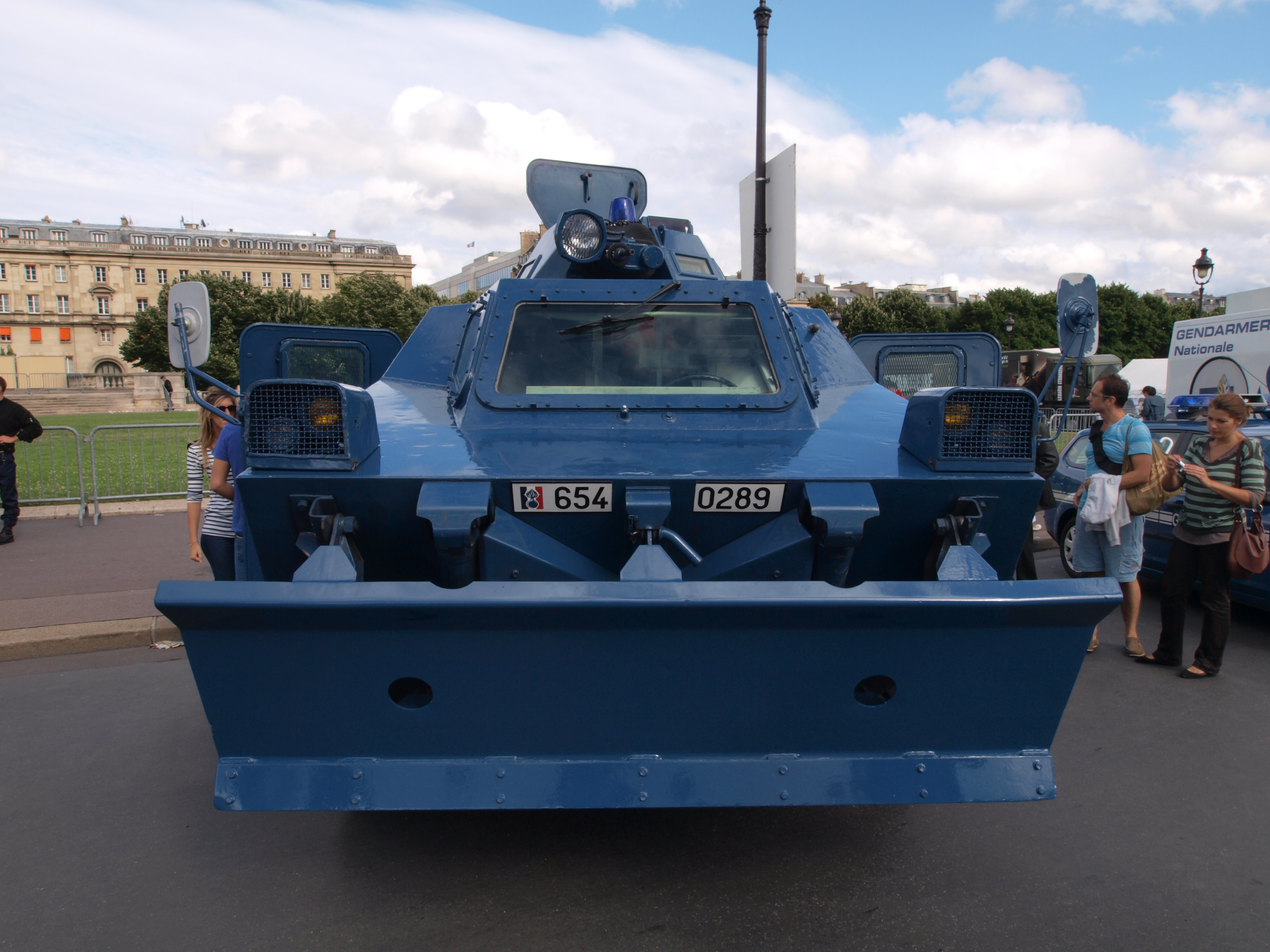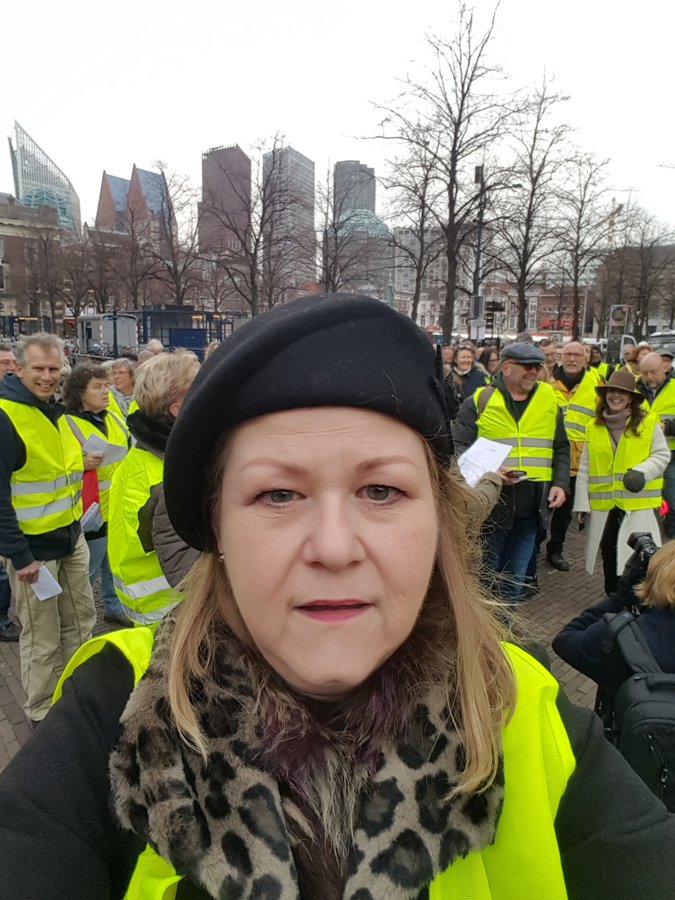Yellow vests movement spreads further in Europe and announces protest in Amsterdam

Voice of Europe,
6 Dceember, 2018
The
yellow vests movement continues to spread across Europe. Originally
from France, there were protests in Belgium, the Netherlands and even
Germany.
After
protests in The Hague and Nijmegen last week, the Dutch protests will
now be organised in Amsterdam, newspaper Het Parool reports.
According
to a spokesperson for Amsterdam mayor Femke Halsema, a yellow vest
protest was announced on Saturday in the city.
Amsterdam
isn’t the first capital to see a yellow vest protest. Earlier
Paris, Brussels and Berlin we’re the location of these protests.
The
movement, which is mostly peaceful, is already successful in France
as President Macron cancelled several
tax measures after an increasing number of protests.
But
the protests are far from over as several unions have
said they
will join the movement, as there is a lot of dissatisfaction with
Macron’s policies.
French
Police Union Calls on Police to Join Yellow Vests' Protests
6
December, 2018
After
the surge in fuel prices in France, the so-called Yellow Vests
movement has held protests, calling firstly on the government to
lower the prices, and then also on French President Emmanuel Macron
to resign. On Wednesday, the French National Assembly approved a
moratorium on the planned fuel price hike.
The
French labour union Vigi has called on its members working
in the national police and in the Ministry of the
Interior to start an indefinite strike on Saturday, joining
the Yellow Vests movement. The statement was placed on Vigi's
Facebook page on Wednesday.
"The
demands made by the Yellow Vests movement related to all
of us. The time to organize legally and express solidarity
with them for the benefit of all has come",
Vigi's post reads.
Notre serveur a sauté à cause du trop grand nombre de connexions donc le communiqué de notre appel à la grève à partir du samedi 8 décembre en soutien au mouvement des #GiletsJaunes
The
call is directed at "administrative, technical, scientific and
state workers/cooks from the Ministry of the Interior",
according to the statement.
"Act
IV" of the Yellow Vests' protests, which is to start
on Saturday, will make the government take precautions,
as during the previous "Act III", more than 260
people, including some 80 police, were injured. Earlier, French
Interior Minister Christophe Castaner announced that he would
reinforce security for next Saturday.
Michel
Thooris, the head of the France Police labour union, said that
the French government had failed to implement security measures
in Paris, noting that "a majority of the French
continue to back the movement". She also
highlighted that using the armed forces against civilians would
indicate that France is heading towards a civil war.
The
protests, which started as a movement against a hike
in fuel prices, turned violent, leading to more than 600
people being injured and at least two deaths. The three-week
demonstration forced the French government to drop the fuel tax
rise from the 2019 budget.
"The
government is ready for dialogue and is showing it because this
tax increase has been dropped from the 2019 budget
bill", Edouard Philippe, the French prime minister, said
on December 5.
France
Sends In Army Autos Used In Battle Zones to Take On Paris ‘Yellow
Vests’ Protests

7
December, 2018
France
was set to deploy armored autos which have been utilized in battle
zones to tackle violent protests which have ravaged the capital.
French
Prime Minister Édouard Philippe mentioned Thursday that safety
forces have been set to ship in as much as a dozen Berliet VXB-170s,
recognized to the nation’s Nationwide Gendarmerie because the VBRG,
alongside 8,000 police and gendarme officers Saturday to safe Paris,
because the gilets jaunes, or “yellow vests,” demonstrations tore
by means of streets in protest of a proposed gas tax and different
unpopular authorities insurance policies. Philippe pointed to looting
and destruction of property in justifying the uncommon measure.
“We
face people who find themselves not there to exhibit however are
there to smash issues up and we need to be sure that we’re not
leaving them to do as they please,” Philippe instructed French
broadcaster TF1.
FranceVBRG
A French Gendarmerie wheeled armored car, often called the VBRG, is
seen on this picture shared by the French Ministry of Armed Forces.
The autos has been utilized in operations in Kosovo and the Ivory
Coast, and isn’t utilized in main cities. French Armed Forces Info
and Public Affairs Service
GettyImages-1069380244
Gendarmes present to French Inside minister Christophe Castaner (3R)
a Gendarmerie armored car (VBRG) on the cell Gendarmerie armored
unit, December 7 in Versailles, west of Paris. Along with the
hundreds of police deployed, a dozen armoured wheeled autos of the
gendarmerie (VBRG) will probably be utilized in Paris to face the
danger of violences through the 4th day of yellow vests mobilization
on December 8
The VBRG
has been utilized by France’s cell gendarmes since 1975 and is
“particularly used throughout legislation enforcement operations
and may be engaged in counterterrorism operations, in exterior
operations and even in operational protection of territory,”
in accordance with the French Protection Ministry’s official web
site. The ministry mentioned the car “efficiently engaged in joint
operations” through the Kosovo Battle and the First
Ivorian Civil Battle.
Able
to being outfitted with a 7.62 mm machine gun, 40 mm grenade launcher
and a bulldozer-like blade, the VBRG has hardly ever been seen
in main metropolis streets. The final time the French safety forces
deployed the car was the pressured evacuation of squatting activists
on the Notre-Dame-des-Landes in western France in April, and VBRGs
have been additionally mobilized throughout riots that hit Paris and
its surrounding suburbs in 2005, in accordance with the Sud
Ouest newspaper
France
has continuously skilled surges of social unrest, however the ongoing
turmoil has been described because the worst the nation has seen in
half a century, with a number of killed and not less than tons of
arrested and tons of extra injured. The “yellow vests” motion
will get its identify from the excessive visibility security vests
that drivers are mandated by legislation to hold of their autos.
Nationwide
protests, strikes and small riots have intermittently continued all
year long to October, however the “yellow vests” motion actually
took off in November as tons of of hundreds took to the streets in
protest of French President Emmanuel Macron’s controversial carbon
tax. The measure was designed to fight local weather change by
climbing gas costs, however has stoked sufficient outrage for a lot
of protestors to demand his resignation.
 Protesters
construct a barricade throughout a protest of “yellow vests”
(gilets jaunes) in opposition to rising oil costs and residing
prices, on December 1 in Paris. The continuing unrest has rocked
French President Emmanuel Macron’s administration at a time when
his reputation was at its lowest level.
Protesters
construct a barricade throughout a protest of “yellow vests”
(gilets jaunes) in opposition to rising oil costs and residing
prices, on December 1 in Paris. The continuing unrest has rocked
French President Emmanuel Macron’s administration at a time when
his reputation was at its lowest level. 
Highschool
college students re-enact yesterday’s scholar arrest in
Mantes-la-Jolie throughout an illustration on the place de la
Republique in Paris, on December 7 to protest in opposition to the
completely different training reforms together with the overhauls and
stricter college entrance necessities. Photographs of dozens of
high-school pupils kneeling with their palms behind their heads
throughout mass round-ups sparked an outcry.
The
“yellow vests” have been additionally not a homogenous motion,
however comprised of assorted teams, together with employees, college
students and activists. The extra violent members have burned down
constructions, looted retailers and attacked police. Macron has
reportedly thought of declaring a state of emergency because the
Eiffel Tower and different websites have been shut down in
anticipation of additional unrest, even because the president
promised to postpone his divisive proposal.
Whereas
scenes of rioters wreaking havoc throughout the nation have drawn
criticism, allegations of police brutality have additionally
bolstered anti-government sentiment in France. Current movies have
emerged exhibiting a number of safety power members beating an
unarmed protestor mendacity on the bottom, in addition to college
students being pressured in opposition to partitions as police broke
up college demonstrations in opposition to Macron’s training
reforms.
In
Paris, but not only that, the gendarmerie tanks will be out tomorrow,
Friday night. Saturday at dawn, snippers will enter the sensitive
places in Paris, the Elysée District of course. And all police
officers and gendarmes will have their weapons loaded with
authorization to open fire "in case of extreme necessity".
The
army will be positioned as reinforcement on, in principle, only
static positions, to ensure the guard of the official buildings:
Elysée, Senate, National Assembly, ministries etc. However it will
have the authorization to move according to the events, to be able to
assure its mission. In concrete terms, for example, if the police and
gendarmerie are submerged in the vicinity of a building defended by
the army, the latter will intervene directly.
Drones
will also be widely used, linked to forces in the field.
Specialized
teams will be in charge of the evacuation of ministers in case the
situation in Paris becomes uncontrollable. An underground base
located on the side of Messanges is ready to welcome them, map below
for our friends from the southwest ("site 1" and "site
2"). For the record, we have a very detailed file on this base
... "secret" external and internal photos, etc. etc.

Base de repli du gouvernement









No comments:
Post a Comment
Note: only a member of this blog may post a comment.